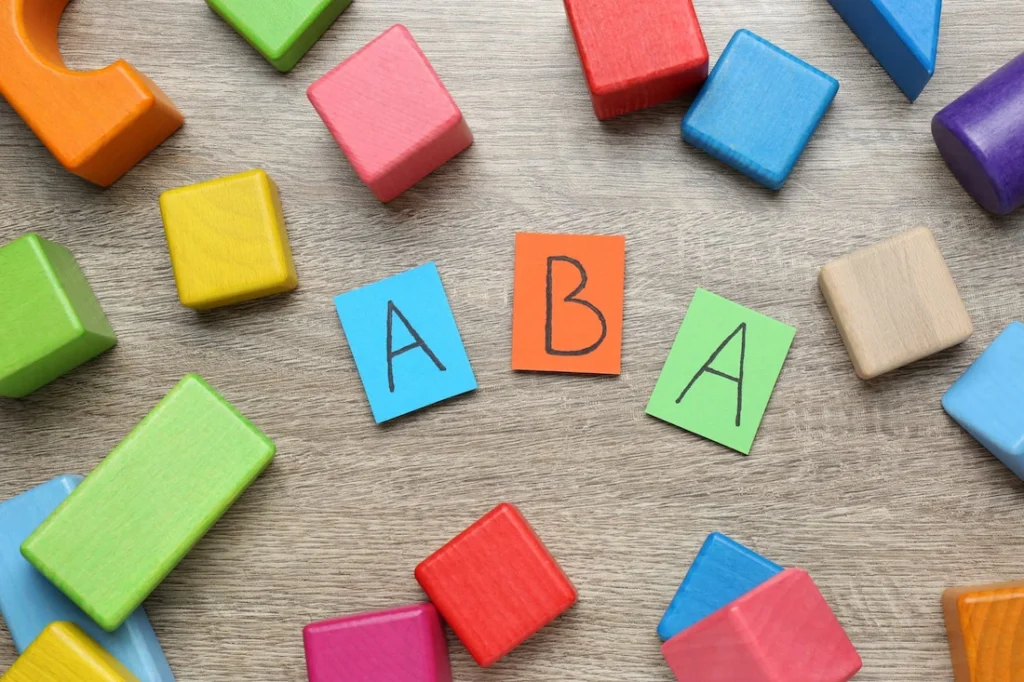If you’re a parent in the Muslim community navigating an autism diagnosis, you’re not alone, and you’re not without support.
We know this journey can be overwhelming, especially when developmental differences aren’t always openly talked about. You might be facing more questions than answers, wondering where to turn or how to find care that understands your child and your values.
At ABA Revolution, we believe therapy should never ask you to set your culture or faith aside. We provide personalized autism support in a welcoming, respectful space built around the needs of your whole family.
From gender-sensitive care to honoring daily routines and religious practices, our team is here to help your child grow, without asking you to compromise who you are.
What Muslim Families Often Face When Looking for Support
When you’re trying to get help for your child, the last thing you want is to feel like no one understands where you’re coming from. Too often, Muslim families encounter barriers that make getting autism care harder than it should be.
Here are a few common challenges we hear from families:
- Language barriers: It’s hard to advocate for your child when you’re trying to make sense of unfamiliar medical terms, insurance paperwork, or treatment plans in a language that isn’t your first.
- Cultural stigma: In many communities, developmental differences aren’t openly discussed. Some parents fear being blamed, judged, or isolated if they speak up about their child’s needs.
- Therapists who just don’t get it: It’s not just about getting treatment—it’s about working with professionals who respect your lifestyle, ask questions before making assumptions, and truly listen.
- Faith-based needs: Respect for modesty, same-gender providers, halal dietary restrictions, and time for prayer are all meaningful parts of daily life. These shouldn’t be treated as “special requests”—they should be part of the care plan from day one.
At ABA Revolution, we take all of this seriously because we know your child’s success starts with you feeling heard.
What Is ABA Therapy?
Applied Behavior Analysis (ABA) therapy is one of the most widely used and effective approaches for helping children with autism build meaningful skills. At its core, ABA is about teaching through encouragement, repetition, and positive reinforcement. That might sound clinical, but in practice, it looks a lot like real life: a child learning how to ask for help, follow directions, play with others, or express big feelings in healthier ways.
Therapists work one-on-one with your child using structured activities and play-based lessons tailored to their goals. Every small success—whether it’s making eye contact, trying a new food, or using words instead of meltdowns—is celebrated and built on. Over time, these small wins add up to big progress.
What makes ABA unique is its customization. Therapy plans are designed to fit your child’s needs and your family’s priorities. It’s not about changing who your child is—it’s about helping them develop the tools they need to succeed in the world around them, with support that honors who they are.
Getting Started with Support
You don’t have to figure this out alone. Whether you’re just beginning to explore your child’s needs or already have a diagnosis, we’re here to help you take the next step with confidence.
- Step one: If your child hasn’t had a formal autism assessment yet, we can refer you to trusted professionals in the area specializing in compassionate, thorough evaluations.
- Next: Once you have a diagnosis, we’ll walk you through the entire admissions process—verifying insurance, answering questions, and helping you understand what therapy will look like for your child.
- Ongoing: We offer flexible scheduling, including options for virtual or in-person parent training, so you can stay involved no matter what your schedule looks like.
There’s Support That Sees the Whole You
Your faith, culture, and family traditions aren’t things to work around—they’re part of what makes your child who they are. At ABA Revolution, we see and celebrate that. We offer more than therapy—we offer a partnership that respects the full picture of your life and your child’s potential. Whether you’re just starting or looking for care that feels like a better fit, we’re here. No pressure, no judgment—just a team that’s ready to listen and help you move forward. Reach out when you’re ready.
FAQs About Autism in the Muslim Community
What should I do if I think my child might be autistic?
If you’ve noticed signs like delayed speech, repetitive behaviors, difficulty making eye contact, or struggles with social interaction, you’re not alone—and your instincts are worth listening to.
The first step is to speak with your child’s pediatrician. You don’t need to have all the answers or be sure of anything. Just express your concerns and ask for a referral to a specialist, such as a developmental pediatrician or child psychologist.
The idea of getting a formal diagnosis can feel scary, especially in communities where autism isn’t openly talked about. However, the sooner your child is evaluated, the sooner they can begin getting the kind of support that helps them thrive. At ABA Revolution, we don’t conduct assessments directly, but we can connect you with trusted providers in the Chicago area who specialize in high-quality, compassionate autism evaluations.
Will therapy respect our religious values?
Yes, your beliefs and way of life are respected and welcomed. One of the biggest myths about therapy is that it asks families to change who they are to fit into a treatment plan. At ABA Revolution, we believe it’s the other way around: therapy should adapt to you.
Whether you observe prayer times, follow modesty guidelines, have gender-specific preferences, or maintain particular routines tied to your faith, our team is ready to listen and adjust. We’ll work with you to make sure your child’s therapy plan supports your values and does not conflict with them. This is a partnership, and your input shapes the way we work with your child.
Do you have therapists who understand Muslim culture?
While not every therapist may come from a Muslim background, cultural respect and responsiveness are built into everything we do. Our staff is diverse, and we ensure that every team member receives training in working with families from various religious and cultural backgrounds.
Just as importantly, we don’t make assumptions—we ask. If there’s something specific that matters to your family, whether it’s how your child is addressed, how sessions are structured, or how routines are explained, we want to know. When you share those details with us, we do our best to incorporate them thoughtfully into your child’s care. Our goal is to make your family feel seen, heard, and supported at every step.
Can ABA help with daily routines at home?
Absolutely. One of the big strengths of ABA therapy is how practical it is. Therapy doesn’t just happen in a center—it’s designed to help your child succeed in everyday life, including at home and in your community.
Depending on your child’s needs, that might mean learning how to follow a morning routine, manage transitions, brush teeth independently, or sit through a family meal. If prayer or religious activities are an important part of your daily rhythm, we can build those into the therapy plan too.
ABA is flexible and collaborative—there’s no one-size-fits-all program here. Our therapists work with you to focus on the skills that matter most to your child’s independence, safety, and confidence.
How do I talk to extended family or my religious community about autism?
This is one of the most common—and most difficult—questions we hear from parents. In many communities, including Muslim ones, autism is still misunderstood. That can lead to judgment, blame, or advice that isn’t helpful. You may worry that relatives will think you’re doing something wrong, or that they’ll treat your child differently once they know.
We get it. That’s why we’re here to help you find language that’s both accurate and culturally sensitive. Autism is not a failure or a punishment—it’s a developmental difference. Explaining it that way, with confidence and compassion, can help others understand what your child needs and how they can support them too.
We also provide guidance, printed materials, and coaching to help you feel more prepared for those conversations. Whether it’s with a grandparent, a friend at the mosque, or your child’s teacher at Islamic school, we’re here to support you in advocating for your child with clarity and grace.
What if I’m not sure if ABA therapy is right for my child?
That’s okay. It’s normal to have questions or even hesitations about starting therapy, especially if you’ve heard mixed things or worry about whether it aligns with your values. At ABA Revolution, we encourage open conversations.
We’ll never pressure you into a decision, and we’ll take the time to explain what therapy is, how we build individualized plans, and what outcomes you can expect. You’re welcome to schedule a tour, meet our staff, and ask anything that’s on your mind.
Whether you decide to start now, later, or not at all, we want to be a resource for your family. Sometimes, talking through your options makes everything feel more manageable.



